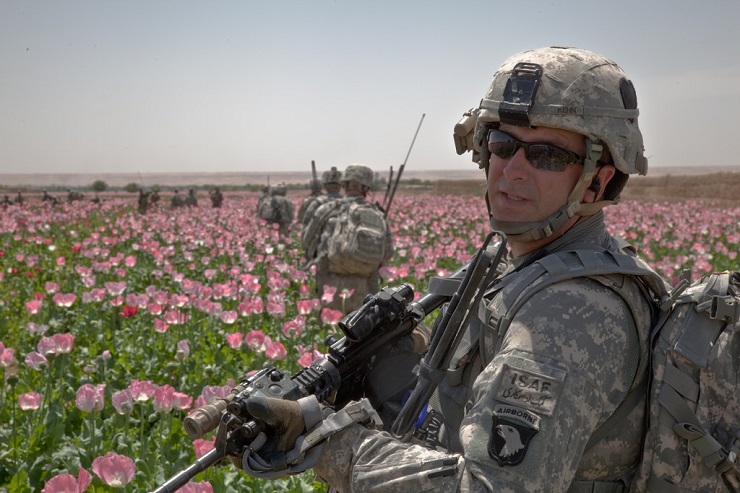After 40 years the United States occupation of Afghanistan has finally ended. I say 40 years because their involvement in the country began in response to the Soviet occupation which began in 1980. The United States supported the mujahedin fighters who opposed the Soviet occupation and never really stopped, even after the Soviets withdrew in 1989. Contrary to American expectations the government of Afghanistan lasted for a further three years.
It was entirely consistent with the United States view of the world but they could not just leave Afghanistan in 2021, but had to leave a trail of destruction behind them. The facilities which made Kabul airport functional were all destroyed. To call the wanton destruction vindictive would be an understatement.
It is well known that the withdrawal from Afghanistan was far from being a universally approved United States decision. There were, and are, strong forces that continue to insist that the decision was wrong. An element of this resistance was self-interest. The United States stands to lose a significant source of illicit income if the Taliban repeat the 1990 policy of destroying the poppy fields.
At the time of the United States invasion in 2001 the poppy fields, source of the heroin that reeks such carnage upon the world, less than 5% of the original poppy fields production remained, existing almost exclusively in the territory that the Taliban failed to control. Now, they effectively control more than 95% of Afghanistan territory, and the small pocket remaining is not known for its ability to grow poppies.
Both the Russian and Chinese government, who have already approached the new regime in Kabul, are making it clear that they expect the Taliban to pursue a similar policy of non-tolerance towards the growing of the poppy and with it the production of what, this year, amounted to more than 90% of the world heroin production.
It has been notable that the western media has almost totally ignored the production of the poppies and with it the supply of heroin in their discussions about the implications of the United States withdrawal. It is not too difficult to realise the reason for this silence. The western media have long subscribed to the view that the United States involvement in Afghanistan was a “democracy building” exercise.
Acknowledging that being the world’s largest supplier of heroin did not fit with the altruistic image the West endeavoured to portray. Almost entirely missing from the western media portrayal of the invasion was the fact that one of the earliest consequences of the United States 2001 invasion was a rapid escalation of poppy production and hence heroin supply. Equally missing from the western narrative was the fact that this production was almost exclusively a United States enterprise, firmly in the hands of the CIA, not only in production, but in the processing of the raw poppy into heroin, and its subsequent distribution around the world. As such it remained a significant contributor to CIA illicit funds, used in turn as part of their worldwide program of influencing governments of multiple countries.
Three of those countries that suffered as a consequence of this heroin epidermic are China, Iran and Russia. It is little surprise therefore that a condition of the support of these three countries to the new Taliban government is a renewal of the latter’s implacable dislike of heroin when they were last in power. The western media have been almost completely silent on the new Afghanistan government’s views on the topic. But there is little reason to believe that their hostility is in any way reduced from when they were last in power.
The control of production has been under the oversight of the many thousands of United States contractors, i.e. mercenaries. Again, the western media have been remarkably quiet about the fate of these thousands of persons who were not part of United States withdrawal plans and presumably remain in place. How long that will persist under the new government is an open question, but they are unlikely to be allowed to remain for very much longer. The local warlords, with whom they cooperated in the production of heroin similarly have a short life expectancy. They are expected to continue to resist the Taliban takeover, but it seems a doomed resistance.
The Imminent destruction of the poppy crop raises the obvious question of its replacement. There are a few places in the world suitable for the growing of a significant crop of poppies to feed the industry. The growers have been largely excluded from the previous production areas of Indochina and the Chinese government is unlikely to tolerate a renewal of that crop any time soon.
The absence of an alternative source of poppy production is likely to create a worldwide problem with addicts being denied their source of supply. Dealing with the effects of the deprivation of supply will create a significant treatment problem for, among others, the governments of Pakistan and Iran, both of whom have seen escalation of addiction in recent years.
In the longer term, coping with the problems of addicts deprived of the supplies are a lesser problem than coping with ever growing numbers of addicts. It may be therefore, that one of the major benefits of the United States forced withdrawal from Afghanistan will be a reduction in the global pandemic of heroin addiction. Not too many tears will be shed for the demise of this appalling trade whose growth and flourishing in recent years should be laid squarely at the door of the Americans. Western media reluctance to discuss this fact should not detract from its importance.
James O’Neill, an Australian-based former Barrister at Law, exclusively for the online magazine “New Eastern Outlook”.

